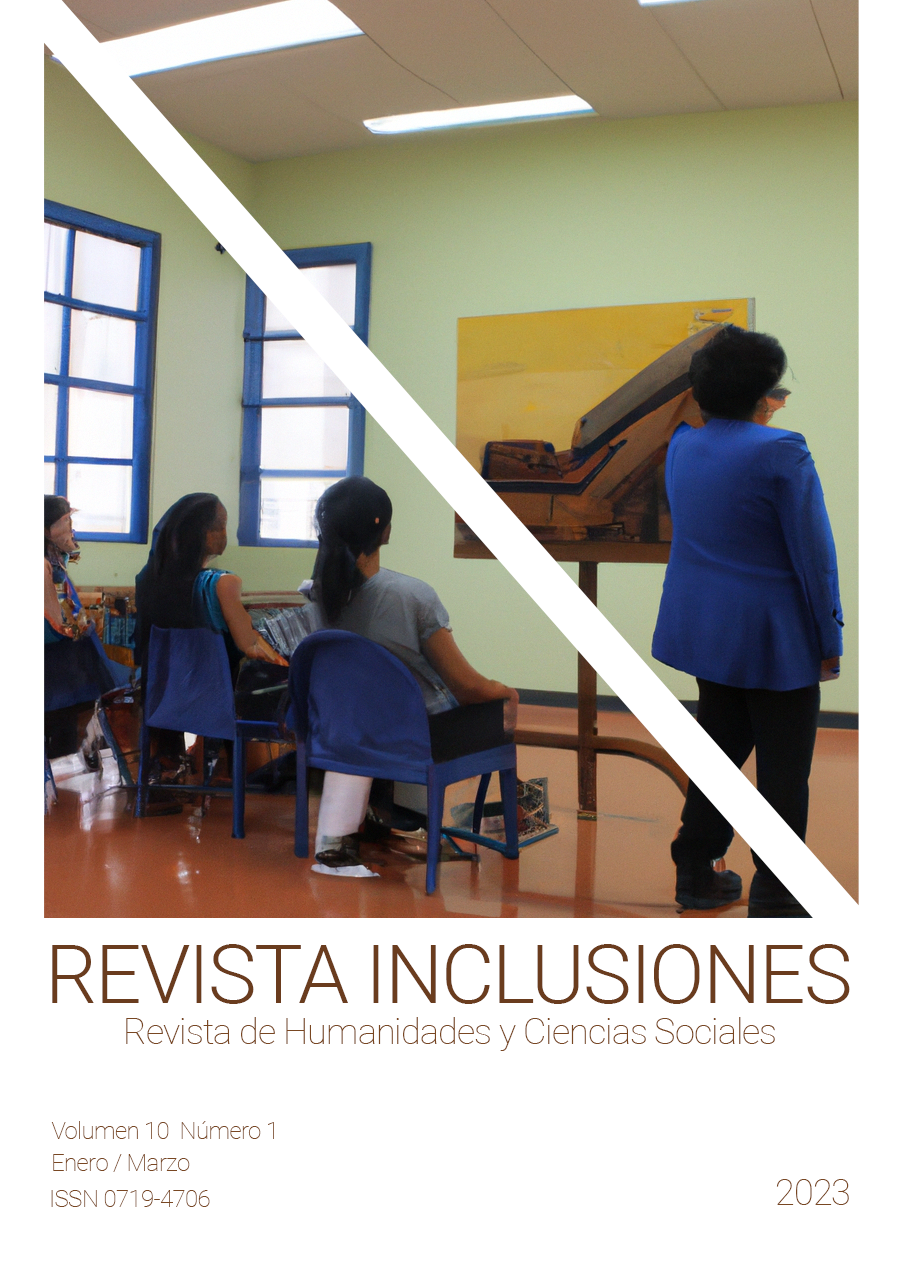SUSTAINABLE DEVELOPMENT, HUMAN NEEDS AND INTERGENERATIONAL RIGHTS
DOI:
https://doi.org/10.58210/fprc3428Keywords:
Sustainable Development, Human Needs, Intergenerational RightsAbstract
The article has as its central object reflections on the needs of future generations in intergenerational rights, based on the concept of human needs proposed by Abraham Maslow, and using as an example the issue of land regulation and its paradoxes when dealing with sustainable development. Here we will address the issue of intergenerational rights precisely in this context of what would be the human needs defined in a concept of sustainable development and how they can be protected in this intergenerational context, in the end, in the context of land regulation in Brazil.
References
Bosselmann, Klaus. “Direitos humanos, ambiente e sustentabilidade”, Centro de Estudos de Direito do Ordenamento, do Urbanismo e do Ambiente. https://digitalis-dsp.uc.pt/bitstream/10316.2/8821/3/1.pdf?ln=pt-pt (28.02.2022).
Bosselmann, Klaus. The Principle of Sustainability: Transforming Law and Governance. Hampshire: Ashgate, 2008.
Brown, Lester. Plano B 4.0: Mobilização para salvar a população. São Paulo: Bradesco, 2009.
Capra, Fritjof e Luisi, Pier Luigi. A Visão Sistêmica da Vida – uma concepção unificada e suas implicações filosóficas, políticas, sociais e econômicas. São Paulo: Editora Cultrix, 2014.
Comissão Mundial sobre Meio Ambiente e Desenvolvimento. Nosso Futuro Comum. Rio de Janeiro: Fundação Getúlio Vargas, 1991.
Commission on Legal Empowerment of the Poor. Making the Law Work for Everyone – Volume 2 – Report of the Commission on Legal Empowerment of the Poor. New Jersey: Toppan Printing Company America, 2008.
Commission on Legal Empowerment of the Poor. Making the Law Work for Everyone – Volume 1 – Report of the Commission on Legal Empowerment of the Poor. New Jersey: Toppan Printing Company America, 2008.
De Schutter, Olivier. “The Role of Property Rights in the Debate on Large-Scale Land Acquisitions”, Revue Internationale de Politique de Développement, vol. 6 (2015). https://doi.org/10.4000/poldev.2026.
De Soto, Hernando. The Mystery of Capital: Why capitalism triumphs in the West and fails everywhere else. London: Black Swan, 2000.
Easley, David e Kleinber, Jon. Networks, Crowds, and Markets: Reasoning about a Highly Connected World. Cambridge: Cambridge University Press, 2010.
Feder, Gershon. “Land ownership security and farm productivity: Evidence from Thailand”, The Journal of Development Studies, vol. 24 (1987), http://dx.doi.org/10.1080/00220388708422052.
Feil, Alexandre André e Schreiber, Dusan. “Sustentabilidade e desenvolvimento sustentável: desvendando as sobreposições e alcances de seus significados”, Cadernos EBAPE.BR, vol. 14 (2017).
Hardin, Garrett. “The Tragedy of the Commons”, Science, vol. 162 (1968). https://doi.org/10.1126/science.162.3859.1243.
Holling, Crawford Stanley. “Resilience and Stability of Ecological Systems”, Annual Review of Ecology and Systematics, vol. 4 (1973).
Lopes, Juliana. “Entrevista exclusiva com Lester Brown, um dos maiores pensadores ambientais do mundo”, Ideia Sustentável. https://ideiasustentavel.com.br/ele-tem-um-plano-b/ (28.02.2022).
Low, Nicholas e Gleeson, Brendan. Justice, Society, and Nature: An exploration of political ecology. London: Routledge, 1998.
Maslow, Abraham Harold. “A Theory of Human Motivation”, Psychological Review, vol. 50 (1943).
Maslow, Abraham Harold. Introdução à Psicologia do Ser. Rio de Janeiro: Eldorado, 1962.
Maslow, Abraham Harold. La Personalidad Creadora. Barcelona: Editorial Kairós, 1987.
Mcshane, Steven L. e Von Glinow, Mary Ann. Comportamento Organizacional. Porto Alegre: McGraw Hill Brasil, 2014.
Mendes, Isabel. “O Conceito de Desenvolvimento Sustentável”, em Perspectivas de Desenvolvimento Sustentável, ed. José Maria Ferreira. Lisboa: Clássica Editora, 2016.
Morin, Edgar; Ciurana, Emílio-Roger e Motta, Raúl Domingo. Educar na era planetária: o pensamento complexo como método de aprendizagem no erro e na incerteza humana. São Paulo: Cortez, 2003.
Organização Internacional do Trabalho. Convenção n. 169 da OIT sobre Povos Indígenas e Tribais. http://www.planalto.gov.br/ccivil_03/decreto/d0678.htm (28.02.2022).
Place, Frank. “Land Tenure and Agricultural Productivity in Africa: A Comparative Analysis of the Economics Literature and Recent Policy Strategies and Reforms”, World Development, vol. 37 (2009). https://doi.org/10.1016/j.worlddev.2008.08.020.
Ponzilacqua, Marcio Henrique Pereira e Silva, Daniel de Souza, “Acesso à Água de Qualidade como Direito Humano Fundamental: a garantia do mínimo existencial”, Revista Humanidades e Inovação, vol. 7 (2020).
Ponzilacqua, Marcio Henrique Pereira. Conflitos Socioambientais, Direito e ONGs. Curitiba: Editora Honoris Causa, 2011.
Reis, Lineu Belico dos; Fadigas, Eliane Amaral e Carvalho, Cláudio Elias. Energia, Recursos Naturais e a Prática do Desenvolvimento Sustentável. São Paulo: Manole, 2012.
Sen, Amartya. Development as Freedom. New York: Alfred A. Knopf, 2000.
Sen, Amartya. The Idea of Justice. Cambridge: Belknap Press, 2009.
Silva, Andreia; Wolf, Letícia; Costa, Maria Cristina; Costa, Susana e
Magro, Tatiana. “Motivação no Trabalho”, Instituto de Educação e Psicologia, Universidade do Minho, https://susanacosta.files.wordpress.com/2006/12/motivacao.pdf (28.02.2022).
Van Bellen, Hans Michael. Indicadores de sustentabilidade: uma análise comparativa. Rio de Janeiro: FGV, 2006.
Vincent, Alice. “Ombundspersons for Future Generations: Bringin Intergenerational Justice into the Heart of Policymaking”, UN Chronicle, vol. 49 (2012). https://www.un-ilibrary.org/content/journals/15643913/49/2/37 (28.02.2022).
Weiss, Edith Brown. “In Fairness to Future Generations and Sustainable Development”, American University International Law Review, vol. 8 (1992). https://digitalcommons.wcl.american.edu/auilr/vol8/iss1/2/ (28.02.2022).
World Future Council. Guarding Our Future: How to include future generations in policy making (2018). https://www.worldfuturecouncil.org/wp-content/uploads/2018/07/brochure_guarding2018b.pdf (28.02.2022).
Downloads
Published
Versions
- 04-06-2023 (7)
- 30-05-2023 (6)
- 30-05-2023 (4)
- 29-12-2022 (3)
- 29-12-2022 (1)
How to Cite
Issue
Section
License
Los autores retienen los derechos de autor y otorgan a Revista Inclusiones el derecho de publicación bajo Creative Commons Attribution 4.0 International (CC BY 4.0). Esto permite el uso, distribución y reproducción en cualquier medio, siempre que se otorgue la debida atribución al autor.











